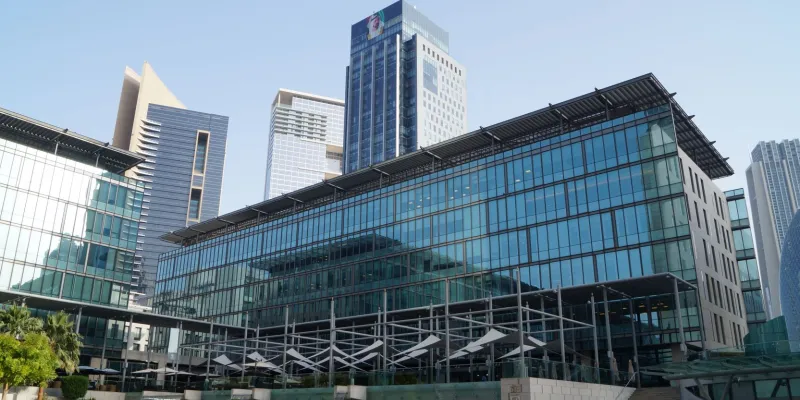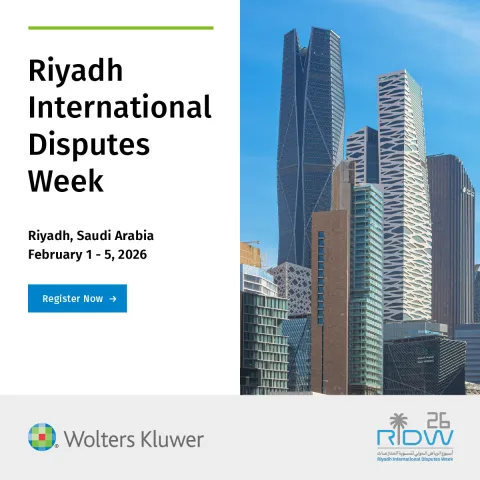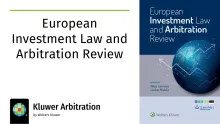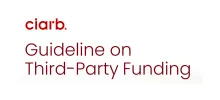The Enforceability of DIFC-LCIA Arbitration Clauses in Light of Decree No. 34/2021: Ignoring the Elephant in the Room?
August 4, 2025
It is difficult to ignore the elephant in the room: Defaulting DIFC-LCIA arbitration clauses to the Dubai International Arbitration Centre (“DIAC”) pursuant to Decree No. 34/2021 Concerning the Dubai International Arbitration Centre (“Decree No. 34/2021”) seriously undermines the concept of party autonomy in arbitration. As reported in a previous blog here, this is essentially the position taken by the United States District Court for the Eastern District of Louisiana (“Louisiana Court”) and the Singapore High Court (“Singapore Court”), according to which defaulting an arbitration agreement that provides for arbitration under the DIFC-LCIA Rules to a DIAC forum in compliance with Decree No. 34/2021 violates party autonomy and thereby renders the arbitration agreement invalid. By contrast, as reported in another blog, the Dubai International Financial Centre (“DIFC”) Court of First Instance (“DIFCCFI”) and the Abu Dhabi Court of Appeal (“ADCA”) have adopted different approaches. Both courts considered themselves bound by the provisions of Decree No. 34/2021 as a positive source of UAE law and rejected challenges to DIAC awards, even where the underlying arbitration agreement provided for arbitration under the DIFC-LCIA Rules rather than the DIAC Rules.
Two more recent judgments further contribute to the debate over whether a combined reading of Articles 6a. and 8c. of Decree No. 34/2021 is truly enforceable.
ADCA Case No. 1273/2024
In this judgment of 7 January 2025, the Abu Dhabi Court of Cassation (“ADCC”) upheld ADCA's decision, which had affirmed the Abu Dhabi Court of First Instance’s nullification of the arbitral award in DIAC Case No. 241/2022. In that case, a sole arbitrator declined jurisdiction to hear the parties’ dispute under the DIAC Arbitration Rules 2022 (“2022 DIAC Rules”), citing the parties’ agreement to arbitrate under the DIFC-LCIA Arbitration Rules (“DIFC-LCIA Rules”). The ADCC held that the sole arbitrator’s finding violated Decree No. 34/2021. It emphasised that the provisions of Decree No. 34/2021 qualified as “mandatory” and “binding legal rules,” elevating them to the level of public policy within the meaning of Article 53(2)(b)(ii) of the 2018 UAE Federal Arbitration Law (“FAL”), as amended. According to the ADCC, the DIFC-LCIA had been abolished and replaced by the DIAC “by force of law,” and all the powers of the former, including existing DIFC-LCIA arbitration agreements, had been transferred to the DIAC by virtue of “a mandatory and binding legal text” pursuant to Decree No. 34/2021. On this basis, the ADCC concluded that “jurisdiction is vested in the Dubai International Arbitration Centre” and that the sole arbitrator’s finding of a lack of jurisdiction was “invalid due to its violation of the public order in the country.”
The ADCC’s approach is hardly surprising: it treated the provisions of Decree No. 34/2021 as a positive source of UAE law, with which arbitrations seated in the UAE have to comply. This aligns with the approach taken by the ADCA in Vaneed Engineering GmbH v. Reem Hospital (Case No. 1046/2023) and by the DIFCCFI in Narcisco v. Nash.
That said, elevating compliance with the rules on forum under Decree No. 34/2021 to a matter of public policy within the meaning of Article 53(2)(b)(ii) FAL does little to resolve the underlying issue: the provisions on forum selection in Decree No. 34/2021 undermine the sacrosanct principle of party autonomy. Notably, Article 6a of the Decree permits the parties to exercise their right to contract into an alternative arbitral institution, i.e., other than the DIAC, only after the arbitral forum has already defaulted to the DIAC by operation of Decree No. 34/2021.
Further, Decree No. 34/2021 is based on the fundamental misperception that the DIAC is a proper successor institution to the DIFC-LCIA. This, with all due respect, is simply incorrect: As argued in a previous post, the DIFC-LCIA is an arbitral institution distinct from the DIAC. Consequently, it cannot be assumed that the parties’ original agreement to resolve disputes through DIFC-LCIA arbitration is interchangeable with arbitration under any other institution, such as the DIAC. Given the distinct nature of what used to be DIFC-LCIA arbitration, conducted under a blueprint of the LCIA Rules under the supervision of the London-based LCIA Court, it is arguable that a party, frustrated in its attempt to refer a dispute to DIFC-LCIA arbitration, might prefer to resort to the courts rather than accept arbitration administered by the DIAC under its rules. The only credible substitute for a DIFC-LCIA arbitration is an LCIA arbitration conducted under the DIFC-LCIA Rules. This remains possible in principle, as the DIFC-LCIA Rules continue to exist and have not been abolished by Decree No. 34/2021. This position is supported by Article 32.4 of the DIFC-LCIA Rules, which expressly permits the LCIA to administer proceedings under those rules.
The Fifth Circuit's Judgment in Baker Hughes v. Dynamic Industries
The second judgment, rendered by the United States Court of Appeals for the Fifth Circuit (“Fifth Circuit”) on 27 January 2025, concerned the Louisiana Court’s ruling on appeal in Baker Hughes v. Dynamic Industries (Case No. 23-30827), which was recently discussed on this blog.
The Fifth Circuit CA held that the Louisiana Court erred in refusing to compel arbitration. It reversed and remanded the ruling, instructing the lower court to consider compelling arbitration in a forum capable of administering proceedings under the DIFC-LCIA Rules, and to issue directions accordingly.
In effect, the Fifth Circuit’s instructions acknowledge the unique institutional relationship between the DIFC-LCIA and the LCIA, the latter being the parent organisation of the former. The now-defunct DIFC-LCIA was intrinsically linked to the LCIA by an inseverable, umbilical connection: The DIFC-LCIA, as an arbitral forum, was premised on its affiliation with the LCIA. Indeed, the DIFC-LCIA Rules were a blueprint of the 2014 LCIA Arbitration Rules, and the DIFC-LCIA's administrative operations were carried out under the supervision of the LCIA Court. In this sense, DIFC-LCIA arbitrations were designed to be LCIA arbitrations seated in the DIFC and conducted under the auspices of the LCIA. The endemic institutional affiliation was codified in Article 32.4 of the DIFC-LCIA Rules, which expressly permitted the LCIA to take over the administration of any DIFC-LCIA arbitration. Accordingly, the DIFC-LCIA was never a standalone arbitral institution. It could only exist as long as the institutional bond between the DIFC-LCIA and the LCIA would endure: In other words, the DIFC-LCIA as a forum was inherently dependent on the role played and functions exerted by the LCIA Court as an administrative and supervising decision-making body in any DIFC-LCIA arbitration. Given the survival of the DIFC-LCIA Rules and the provisions of Article 32.4, it is arguable that the LCIA could, if it was willing to, administer proceedings under the DIFC-LCIA Rules. As a corollary, following the enactment of Decree No. 34/2021, any DIFC-LCIA arbitration should have defaulted to the LCIA as the parent forum of the now defunct DIFC-LCIA. The relationship between the LCIA and the DIFC-LCIA was unique on a global scale and cannot be substituted by a successor organization such as the DIAC.
To date, discussions on forum selection have largely overlooked the LCIA's role as the parent forum of the DIFC-LCIA. They have primarily focused on institutions such as the DIAC, which, by virtue of Decree No. 34/2021, has stepped into the shoes of the DIFC-LCIA, inheriting its assets, caseload, arbitrator lists, among others. However, the DIAC does not administer arbitrations under the DIFC-LCIA Rules, nor does it maintain any institutional relationship, let alone an umbilical one, with the LCIA, which served as the parent forum for DIFC-LCIA arbitrations.
For the avoidance of doubt, the defining feature of the DIFC-LCIA Rules was the administration of a DIFC-LCIA arbitration under the supervision of the LCIA Court. It was precisely this umbilical link between the DIFC-LCIA and the LCIA (in particular through the LCIA Court) that led contracting parties to opt into the DIFC-LCIA Rules. This institutional relationship is something that the DIAC, or arbitration under the DIAC Rules, is unable to replicate.
Conclusion
In light of the foregoing, and viewed through the lens of party autonomy, it is evident that the DIAC does not qualify as a proper successor forum to the DIFC-LCIA. A party’s choice of arbitration under the DIFC-LCIA Rules implies a preference for a DIFC-LCIA forum and, by extension, the LCIA. Realistically, arbitration under the DIFC-LCIA Rules can only be authentically administered by the DIFC-LCIA or the LCIA, and with the DIFC-LCIA being defunct, by the LCIA as the DIFC-LCIA’s parent forum.
Contrary to the Fifth Circuit’s considerations, a reference to arbitration under the DIFC-LCIA Rules must, by definition, qualify as a forum-selection clause (as correctly identified by the Louisiana Court), rather than merely a choice-of-law clause. In other words, selecting the DIFC-LCIA Rules implies the DIFC-LCIA as the principal forum of choice and the LCIA as the default forum. This selection is integral to the parties' agreement and must therefore be treated as exclusive.
As a result, Articles 6c and 8 of Decree No. 34/2021 constitute a breach of the principle of party autonomy and, as such, violate Article II(3) of the 1958 New York Convention. On remand, the Louisiana Court would be justified in compelling arbitration under the DIFC-LCIA Rules, administered by the LCIA. This may, however, raise the question of whether the LCIA would be willing to act as the administering institution in light of the agreement with the DIAC that all DIFC-LCIA arbitrations would devolve to the DIAC pursuant to Decree No. 34/2021. While the precise terms of that agreement remain unknown, it might be worth a try (though this may risk further institutional challenges). In any event, following the ADCC’s ruling in Case No. 1273/2024, caution will be necessary to avoid breaching UAE public policy.
You may also like











